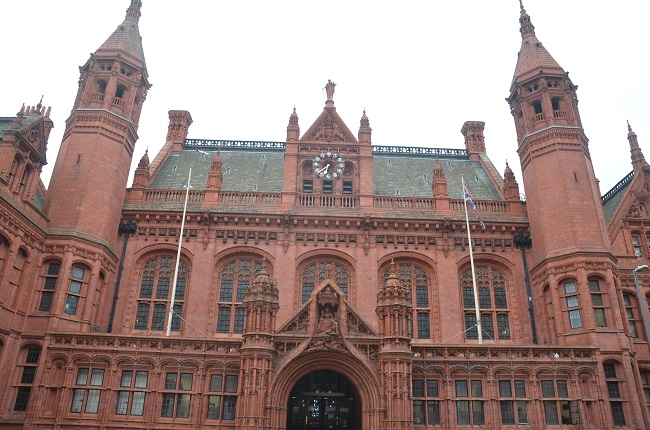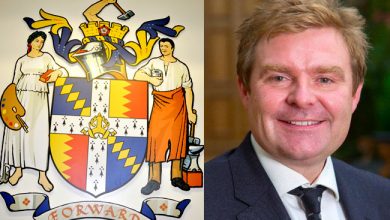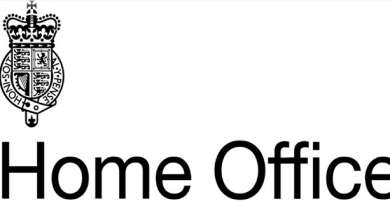West Midlands bucking the trend as bus usage begins to grow

Alyssia Samra, left, and Matthew Astley with Mayor of the West Midlands Andy Street launching half-price fares for apprentices in 2017.
Half-price travel for under-18s and low fare zones are driving growth in bus usage in West Midlands.
Fare-busting initiatives, delivered through the West Midlands Bus Alliance, are seeing the region buck the national trend of falling passenger numbers and rising fares.
Last year half-price travel was extended to all 16-18-year-olds, benefitting up to 105,000 apprentices, students, trainees and those in work.
National Express West Midlands (NXWM), by far the region’s largest bus operator, has seen a 12 per cent increase in journeys by young people as a result.
There has also been good growth in passenger numbers in Walsall and Dudley following the launch of low fare zones, in which a standard cash daysaver ticket costs £3.50 instead of £4.60.
The first zone in Sandwell and Dudley brought an extra 4,000 journeys a day on NXWM buses alone.
Passenger journeys on National Express Coventry services have also increased by two per cent year on year, with over fifty per cent of fares on university bus routes paid for on contactless, which is ten pence cheaper than the cash fare.
But the growth is not just due to lower fares. Convenient payment by mobile phone, the Swift travel card and contactless cards, as well as live timetable apps are increasingly available across the network making bus travel easier.
While 350 of the latest Platinum buses are now in service offering a more comfortable ride with free wi-fi for passengers.
And there has been £10 million investment in highways and junctions, including the new Harborne bus lanes, to reduce bottlenecks and improve reliability of services.
The Bus Alliance, a partnership between Transport for West Midlands (TfWM), bus operating companies, the Safer Travel team and passenger group Transport Focus has been driving many of the improvements.
Mayor of the West Midlands Andy Street said: “Buses are the most used form of public transport with more than 260 million journeys a year.
“That is why we are serious about backing bus – making it easier to travel and better value for money for our citizens.
“It’s thanks to great innovations like low fare zones, half-price travel for more young people and smart ticketing that we are not seeing the same falls in bus travel as in other parts of the country.
“We are able to deliver this because we work closely in partnership with the bus companies and passenger groups through the Bus Alliance.”
The numbers of fare paying passengers rose very slightly by 0.1 per cent during 2018. With a steady and consistent rise since April 2018.
This compares to a general downward trend in bus usage across the country in recent years.
NXWM the region’s largest operator, has reported a one per cent rise in commercial patronage – fare paying customers. And 76 per cent of those customers are paying the same or less this year than they did in 2018.
David Bradford, Managing Director of National Express West Midlands, said: “In the last year, we’ve seen growth of over one per cent in fare-paying passengers.
“We’ve done this by working in partnership through our award-winning Bus Alliance to make bus travel better for our customers. It’s helped bring in highways improvements that tackle congestion and speed up bus journeys.
“We’ve modernised and made it easier to travel by bus. Millions have been invested in 350 brand new Platinum buses and we’ve upgraded older vehicles to attract people out of private cars and help clean up the air across the region – our passenger numbers are up.
“76 per cent of our customers are paying the same or less this year than they did in 2018. Our targeted pricing has helped boost local economies. 67 per cent of our customers said they’re making more journeys – and two thirds of those said they’re shopping more.
“We’ve also invested heavily in smart ticketing including mobile and contactless with daily capping – we’re the only place outside London to have that. Our customers love how quick and easy it is – and it’s also great value.”
TfWM, a part of the West Midlands Combined Authority (WMCA), set up the Bus Alliance in 2015 to improve services for passengers by working with bus operators.
Cllr Roger Lawrence, WMCA portfolio holder for transport and leader of the City of Wolverhampton Council said: “The aims of the Bus Alliance include making journeys quicker and easier, providing better value for passengers, making it more attractive for young people and to drive investment in buses to both reduce emissions and increase comfort.”
Bus is by far the most used form of transport with more than 260 million journeys a year in the West Midlands compared to 50 million for rail and about 7 million on Metro.
Making travel easier:
Contactless debit and credit card payments available on all National Express WM buses. A quarter of all fares are paid for using contactless and we’re the only place outside of London to have daily capping
Swift Travel card offering discounted tickets which can be used across multiple bus operators. Plans to develop Swift on mobile Google app
Mobile ticket app also ending the need to find exact change. Four million tickets have been sold on the National Express West Midlands mTicket app
Network WM app giving live timetable information and journey planners to help passengers
Better value:
Half price travel extended to all 16-18 year-olds with a free Network photocard last year – that’s 105,000 young people
Low fare zones offering discounted off peak travel in Walsall, Sandwell, Dudley and suburban Birmingham
More reliable journeys:
£10 million invested in highway measure such as the new bus lane in Harborne and bus priority measures at junctions
Buses are at the centre of plans to mitigate congestion around the construction of HS2 and other key developments
In 2018 National Express West Midlands journey times were 1% faster than in 2017 – meaning quicker journeys for customers
Safer Travel:
More CCTV on buses and introducing bus bye-laws to tackle anti-social behaviour





